Weird Kitties Reviews (The Shepherd’s Crown, Annie’s Arms, The Dusty Hat)
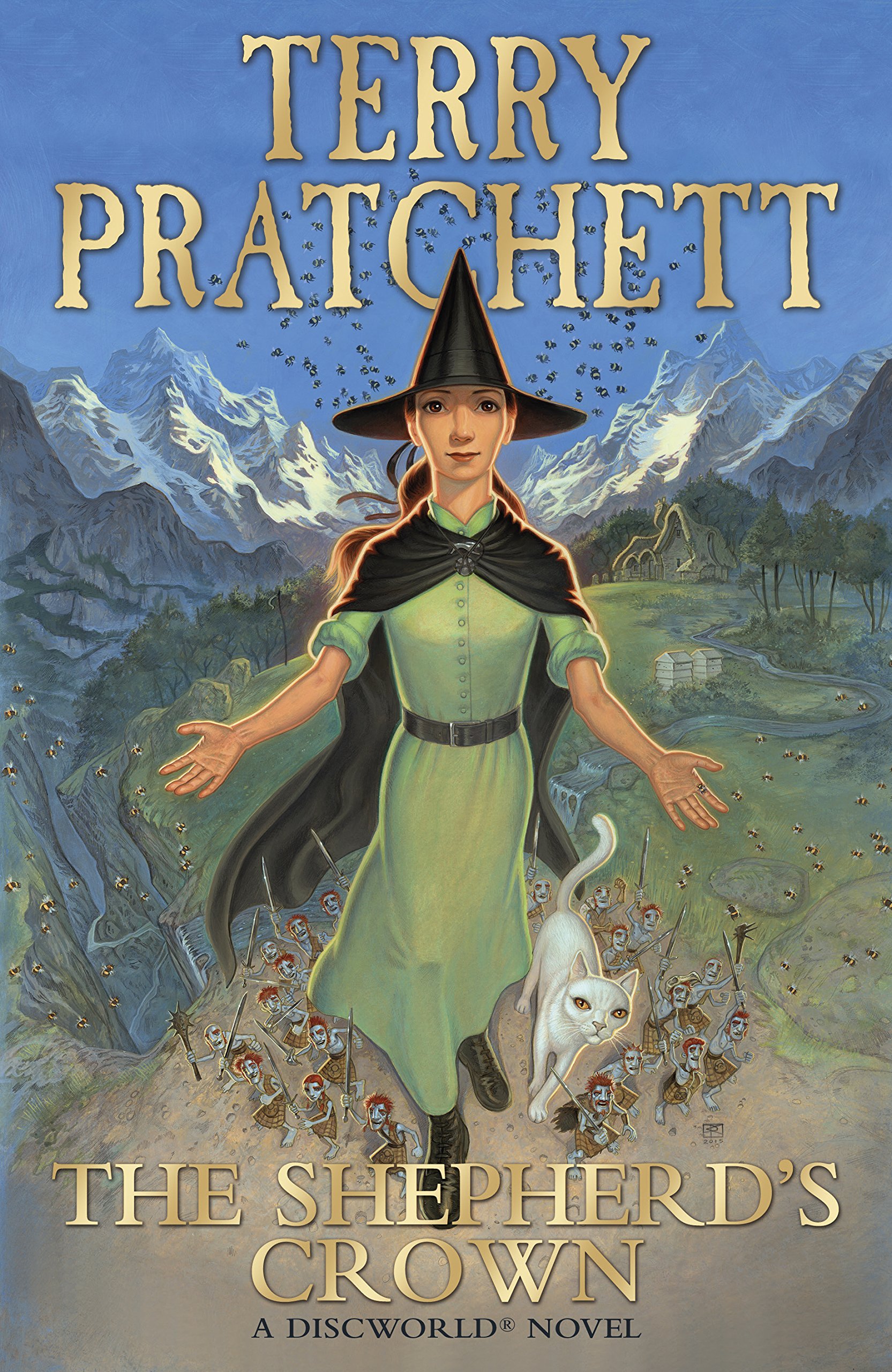 The Shepherd’s Crown by Terry Pratchett
The Shepherd’s Crown by Terry Pratchett
Reviewed by Daibhid Ceannaideach
Eligable for Best Novel and available for purchase here.
The Shepherd’s Crown is the fifth and last Tiffany Aching book, the forty-first and last Discworld novel, and the fifty-seventh and last novel by Terry Pratchett. It also opens with a major event which many reviews have been criticised for spoiling. But you can’t really discuss the book without spoiling it; it’s like reviewing Raising Steam without mentioning it involves a train.
So here goes: Granny Weatherwax, most respected of the leaders witches don’t have and part time force of nature, is no more. This happens in the second chapter, and the rest of the book is about a world with a Granny Weatherwax shaped hole in it.
In a way, this is almost too appropriate for the last Discworld book, coming a mere six months after fans found themselves in a world with a Terry Pratchett shaped hole in it. Some people who heard the spoiler were grateful that they now knew they weren’t ready to read the book. Granny Weatherwax was the character Sir Terry used as an example when discussing how popular characters are immortal, she’d been around since the third book, of course Discworld ends as she does.
No other character would work here; Rincewind has been around for longer, but was always a much broader comic character; a novel centred around his death would be like seriously considering the funeral of Daffy Duck. There could certainly have been a novel about the Watch dealing with the death of Vimes, but Vimes’s death would probably be messier, and dealing with it would involve bringing those responsible to justice. Granny dies peacefully in her sleep, just like Terry did.
And, of course, we’re reading too much into it already. The last five books have all “obviously” been Terry’s final novel where he says farewell to his characters. It’s pretty clear he never thought that way, and the afterword by Rob Willkins reveals there were at least four ideas he was working on that we will now never see. There was never going to be a “final Discworld novel”, there was just going to be a point where they stopped.
But this is nonetheless a book that works as a final Discworld novel. It also works as the last Tiffany Aching novel, which probably was intentional; Tiffany comes into her own as the new major witch, as we always knew she could, and has to face the elves, just as she did aged nine in The Wee Free Men. The way she does this involves a decision it is hard to imagine Granny Weatherwax making, but is very Tiffany Aching, showing that, while she learned from the best, what she learned was how to be herself.
But the echoes of past witches novels stretch further than that. Pretty much all the witches appear in it and most of them get a moment to shine (even Mrs Earwig). Geoffrey, the young man who wants to be a witch, is paralleled to Eskarina Smith, the young woman who wants to be a wizard in Equal Rites, thereby highlighting that there are two edges to why fixed gender roles are wrong, and that while one is more obviously discriminatory, the other is no better for being insidious.…

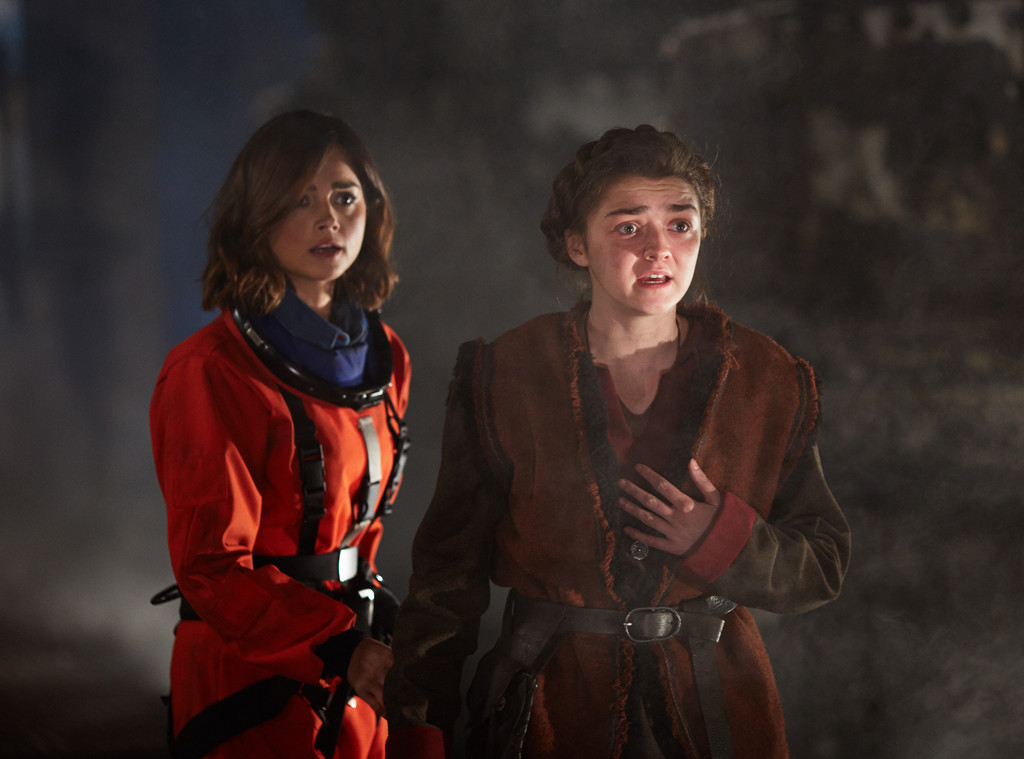 Oh good, they didn’t just completely forget how to make
Oh good, they didn’t just completely forget how to make 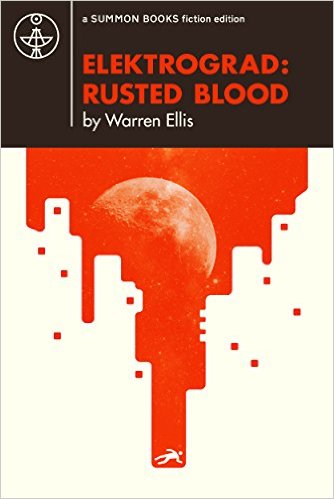 Ah, Best Novelette. The form that only the Hugos actually recognize, occupying the space between short story and short novel. Long story, as it were. Or, in technical terms, anything between 7,500 and 17,500 words long, because obviously people know the word length of things they read.
Ah, Best Novelette. The form that only the Hugos actually recognize, occupying the space between short story and short novel. Long story, as it were. Or, in technical terms, anything between 7,500 and 17,500 words long, because obviously people know the word length of things they read.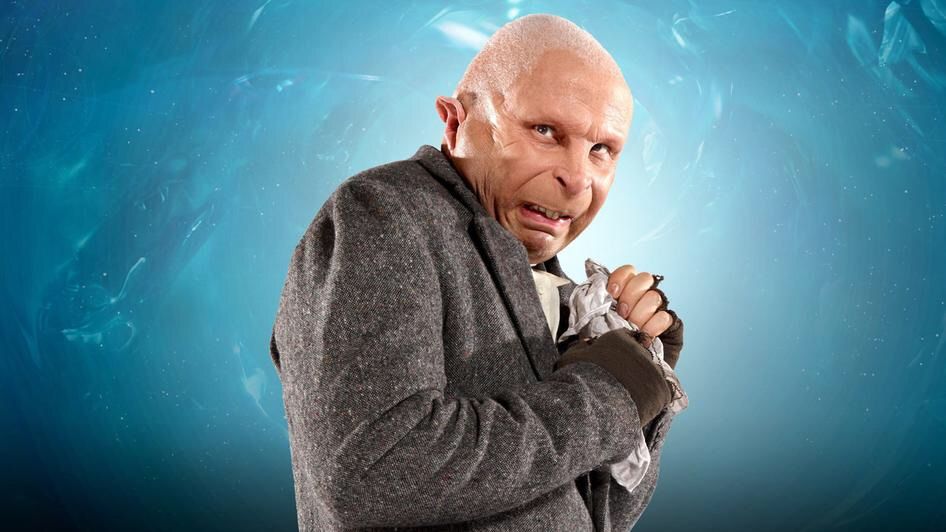 Following Jack’s
Following Jack’s 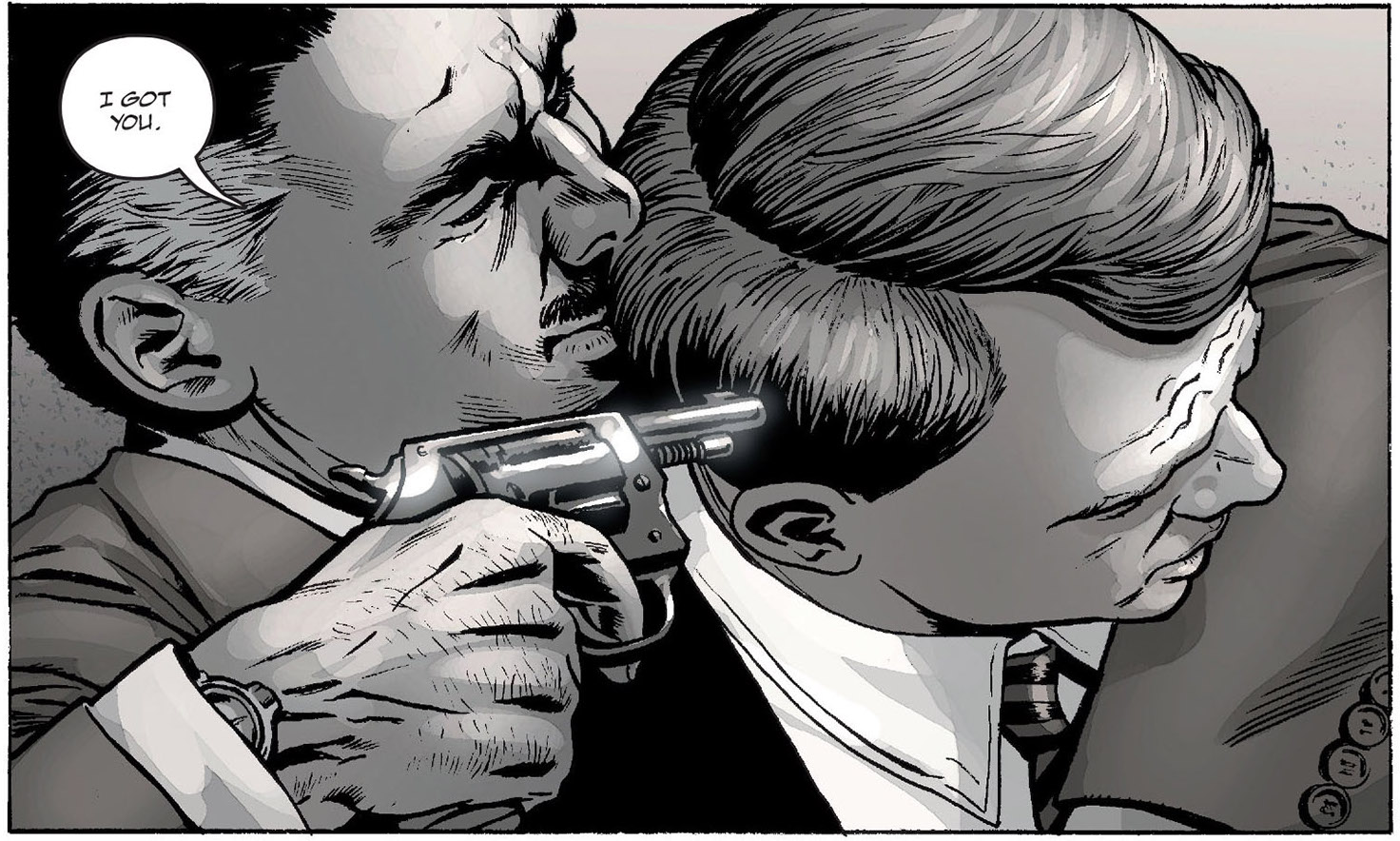
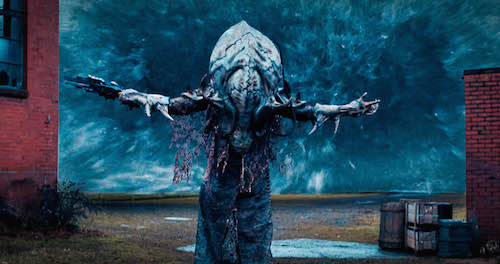 This week I’m joined by the wonderful Anna Wiggins, known to Eruditorum Press readers for her guest posts in the Super Nintendo Project and TARDIS Eruditorum, and known to Eruditorum Press writers as the person who makes the site actually work. Anyway, we talk Before the Flood, Toby Whithouse, disability representation, Whithouse’s frequent blind spots with regards to transgender and feminist issues, and many more reasons why we just don’t like Toby Whithouse all that much. Honest, it’s not a site editorial position or anything.
This week I’m joined by the wonderful Anna Wiggins, known to Eruditorum Press readers for her guest posts in the Super Nintendo Project and TARDIS Eruditorum, and known to Eruditorum Press writers as the person who makes the site actually work. Anyway, we talk Before the Flood, Toby Whithouse, disability representation, Whithouse’s frequent blind spots with regards to transgender and feminist issues, and many more reasons why we just don’t like Toby Whithouse all that much. Honest, it’s not a site editorial position or anything.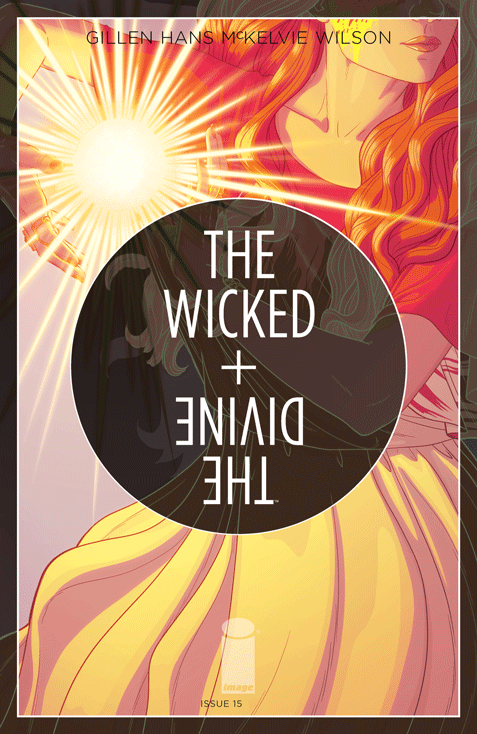 You know the drill.
You know the drill.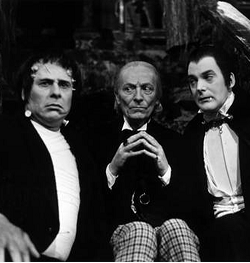 We’re pleased to announce this month’s second installment of Pex Lives, which I literally had no idea was even happening until it popped up in my inbox yesterday, and which I hope will be as pleasant a surprise for you as it was for me.
We’re pleased to announce this month’s second installment of Pex Lives, which I literally had no idea was even happening until it popped up in my inbox yesterday, and which I hope will be as pleasant a surprise for you as it was for me.  Arguably the most Hegelian moment in all of video games, at least in an aesthetic sense, comes at the start of E.V.O. as the player’s avatar – at this particular moment in the game a fish – meets a jellyfish and is welcomed to the dialectical process of evolution. The jellyfish explains the three rules of evolution: fight for survival and for food, only move forward never back, and evolve and become strong. At which point the dialogue ends, the player bites the jellyfish in the head twice, and then eats the juicy roast his corpse converts into thus regaining some health and gaining experience. The process reiterates until eventually the player evolves into a human being, defeats the monstrous Bolbox, and reaches Eden where he is finally allowed to become Gaia’s consort and bring about civilization.
Arguably the most Hegelian moment in all of video games, at least in an aesthetic sense, comes at the start of E.V.O. as the player’s avatar – at this particular moment in the game a fish – meets a jellyfish and is welcomed to the dialectical process of evolution. The jellyfish explains the three rules of evolution: fight for survival and for food, only move forward never back, and evolve and become strong. At which point the dialogue ends, the player bites the jellyfish in the head twice, and then eats the juicy roast his corpse converts into thus regaining some health and gaining experience. The process reiterates until eventually the player evolves into a human being, defeats the monstrous Bolbox, and reaches Eden where he is finally allowed to become Gaia’s consort and bring about civilization.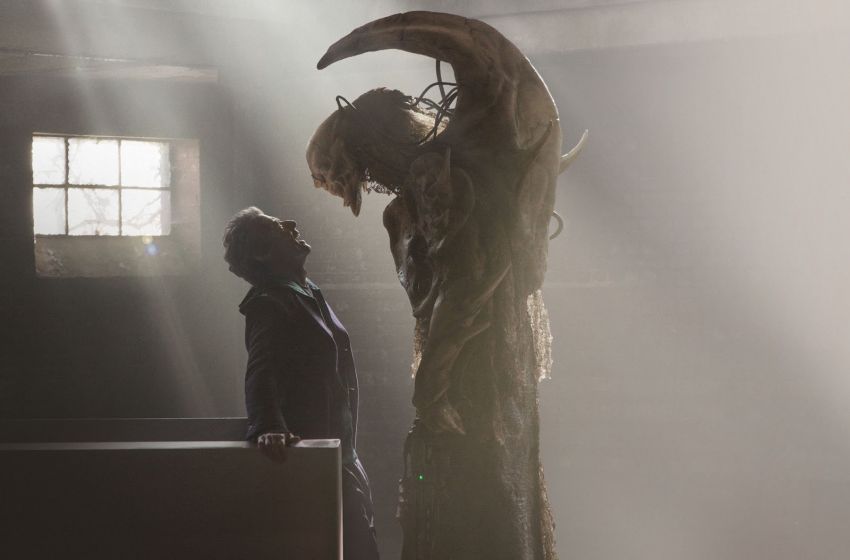 Well, that’s what I get for getting my hopes up about a Whithouse story I suppose. This was just crap. Unambitious, unimaginative, uninteresting crap made at best semi-competently. By some margin the worst episode of the Capaldi era, and saved from being Whithouse’s worst script only by the fact that
Well, that’s what I get for getting my hopes up about a Whithouse story I suppose. This was just crap. Unambitious, unimaginative, uninteresting crap made at best semi-competently. By some margin the worst episode of the Capaldi era, and saved from being Whithouse’s worst script only by the fact that